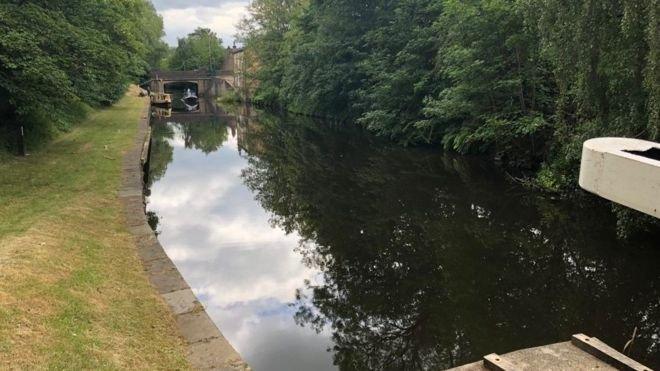The hidden dangers of magnet fishing
- Published
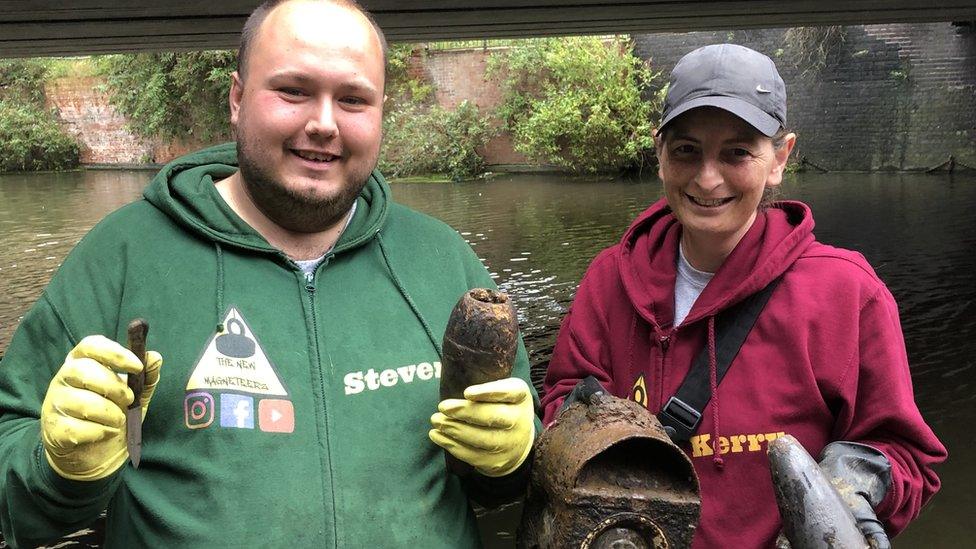
Steven Matts and Kerry Newman with two mortar shells, a knife and an old railway lantern
Magnet fishing - where people hunt for metal submerged in canals and rivers - is increasing in popularity, with thousands uploading videos of their finds on YouTube. But there are stark warnings to be heard over this potentially dangerous hobby.
"You do look at it afterwards and think, 'that could have gone off'," said Nigel Lamford.
When he discovered a suspected grenade in July, the road was closed for six hours while the police and bomb squad dealt with it.
This was not the first time one of his discoveries had shattered the peace of the canal-side with wailing sirens and flashing blue lights. Nor was the grenade his first - he has pulled out at least one other from Northamptonshire's waters, in addition to 100 bullets and 13 guns.
"When you pull something up like a grenade you get an adrenaline rush," he said. "I make sure people stand away."
Magnet fishing: England rugby star James Haskell's unusual hobby
Incidents like this are now a frequent consequence of magnet fishing, which involves dangling a magnet attached to a rope into water to locate metallic finds. It has found popularity on social media, in particular, YouTube, where there are more than 500,000 results relating to the hobby.
Enthusiasts point to two factors for its appeal. Firstly, unlike traditional angling, you rarely go home empty-handed. Secondly, there is the mystery of the unknown. Both of these appear to outweigh the dangers.
Grenades, like the one found in July in Lancashire for example, are regularly turned up. Some catches can be even more alarming - in March, magnet fishers in the River Itchen at Woodmill in Southampton found the body of a handcuffed man.
Yet more seriously, a father and son died while magnet fishing in 2018, prompting a warning from the coroner about the "inherent dangers" of the pastime. Martin Andrews, 43, and Jack, 19, were using a very strong magnet on a rope to "catch" pieces of metal in the Huddersfield Canal. Their inquest heard their bodies were found "vertically submerged" and their deaths declared as misadventure.
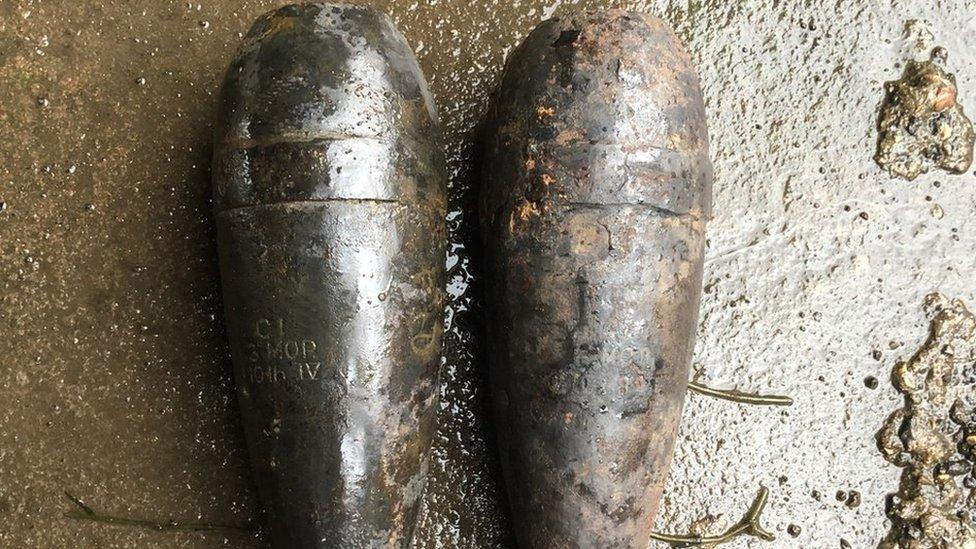
Two mortar shells found in a canal by magnet fisher Steven Matts
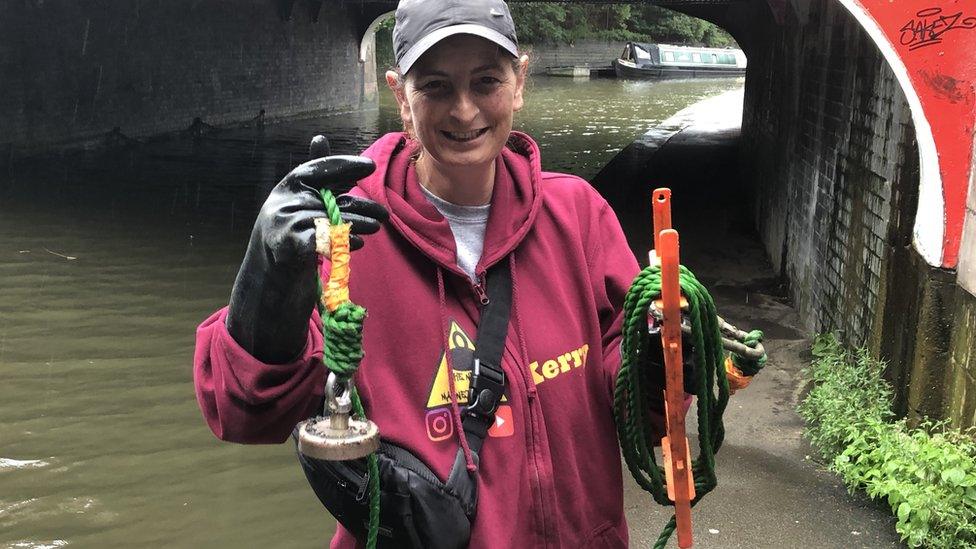
Magnet fishers say they are more likely to return home with a find than traditional anglers
For many magnet fishers however, the thrill of the catch is too tempting to ignore.
"I enjoy the unknown. You just never know what's on the end of your rope - it could be junk, weapons, bikes or old tools," said Gareth Bryer, who has more than 61,000 subscribers to his magnet fishing YouTube channel, Drasticg.
His haul has included jewellery and watches from canals in the Greater Manchester area as well as guns, knifes, motorbikes [and] safes from robberies.
Steven Matts said he has handed in 21 knives to police since he started magnet fishing in Leicestershire's canals almost a year ago. He said he had also found a number of bags weighed down with bricks, containing clothes, hats and gloves.
"From the volume of knives and clearly stolen items we find I do believe the canal is used a dumping ground for... criminal activity," he said. "It is an easily accessible way for them to get rid of evidence."
Northamptonshire Police said that although there are no laws against magnet fishing, they would ask fishers to exercise "due care" when handling objects, such as unexploded World War Two bombs.
"[They] can be extremely dangerous, as well as resource-intensive for our response officers."
You might also be interested in

An auctioneer told Steven Matts this sign dated from between 1905 and 1908
Neither is it illegal to go magnet fishing on land where hobbyists have sought permission.
But the Canal & River Trust, which owns most of the UK's canals, has bylaws prohibiting people from removing material from the canal and rivers it owns.
While it rarely enforces these, it disapproves of magnet fishing, pointing to "rusty and sharp" metal discarded on the towpath and other dangers. It says it prefers people to arrange organised events.
"That way we know who's involved, can ensure there are proper safety measures in place to protect those taking part and can make sure that everything is properly cleaned up afterwards by the organisers," said Dan Whyment, from the trust.
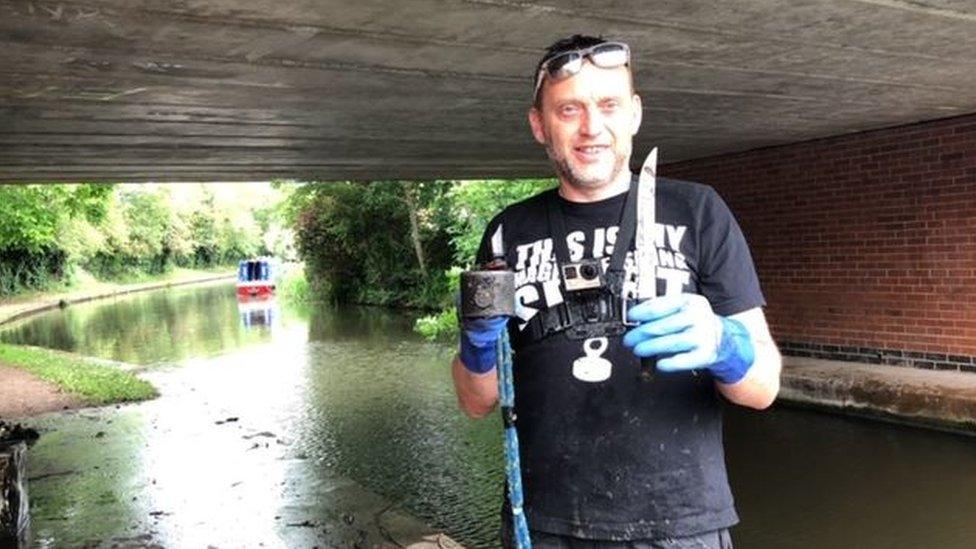
Nigel Lamford has had several visits by the police warning him to stop magnet fishing because of the dangers of live explosives but says he will not give up his hobby
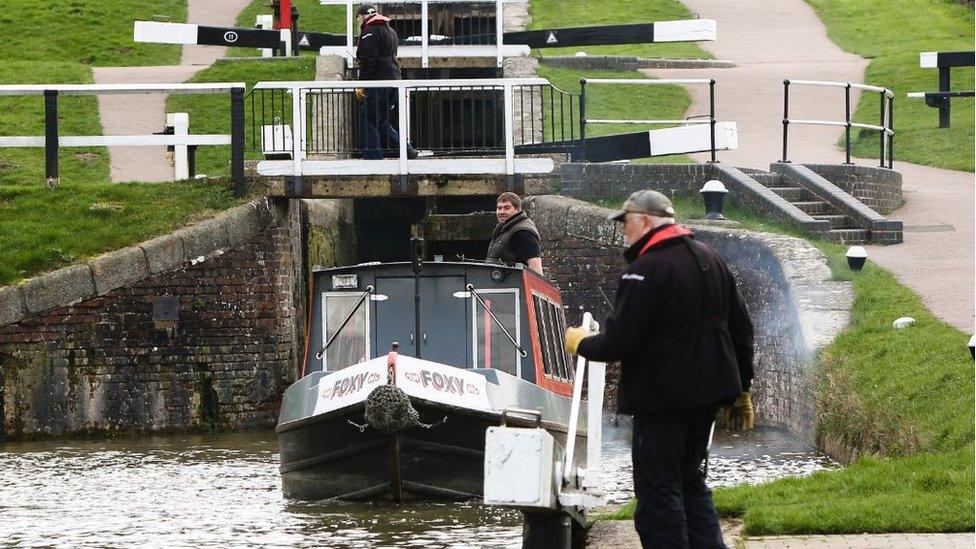
Boat owners have long used magnets attached to rope to retrieve lost keys, glasses or other items which fell overboard
Some argue, however, that magnet fishers are actually benefiting the environment - and there may be some truth in this.
"Any sport or activity that promotes removal of metal from waterbeds is a good thing," said Dr Andrew Pledger, an ecologist at the University of Loughborough.
"The metal may degrade over time. There may be paint that contains toxins and lead which may be leaking undesirable substances into the water.
"Obviously they need to be disposed of correctly."
He believes a code of practice could help make magnet fishing safe.
Currently the Environment Agency does not regulate magnet fishing, but given its increasing popularity, the authorities may well find themselves having to dip a toe into murky waters.

Follow BBC East Midlands on Facebook, external, on Twitter, external, or on Instagram, external. Send your story ideas to eastmidsnews@bbc.co.uk, external.
- Published16 July 2019
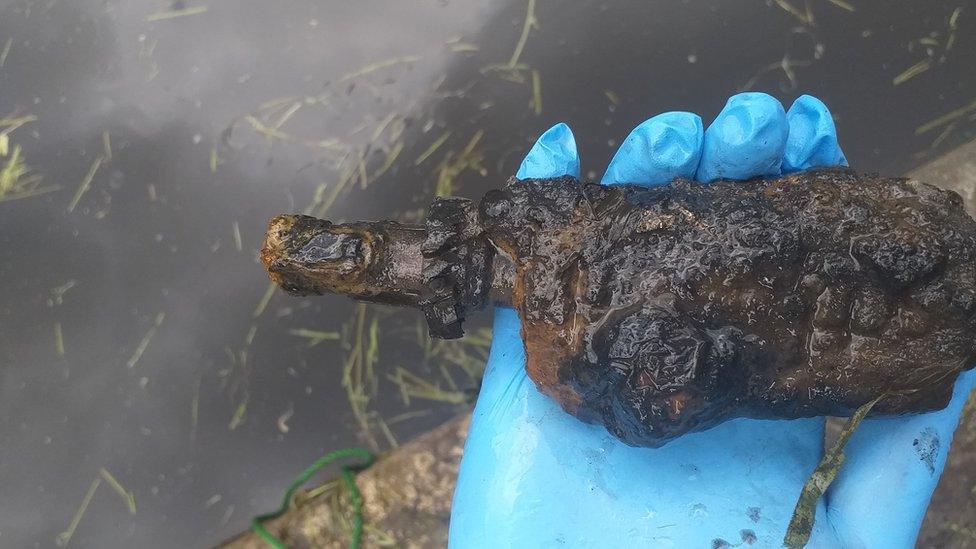
- Published5 July 2019
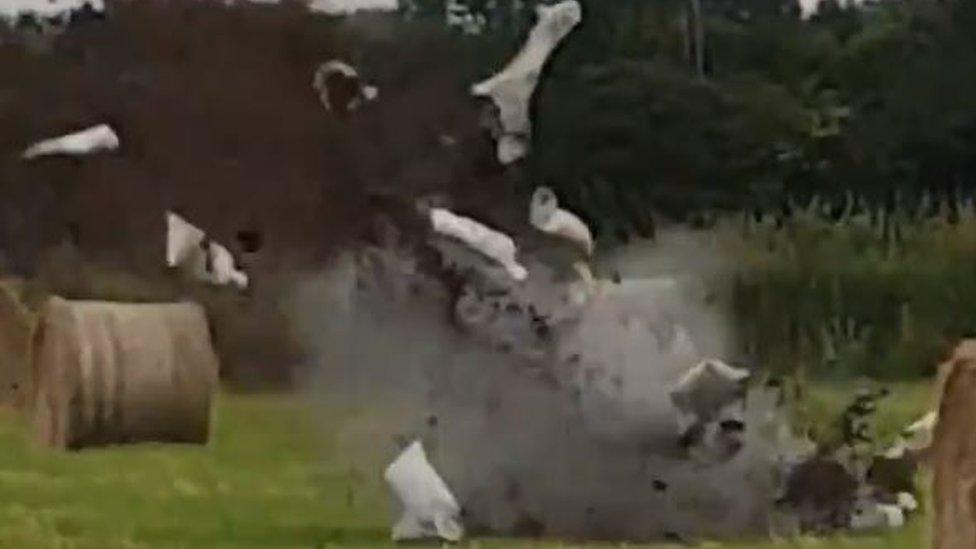
- Published20 March 2019

- Published18 September 2018

- Published27 June 2018
